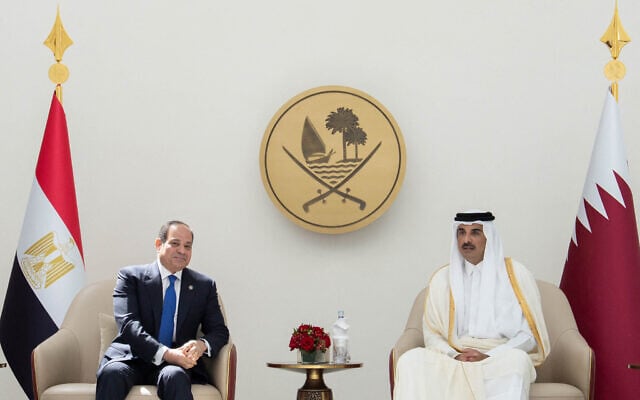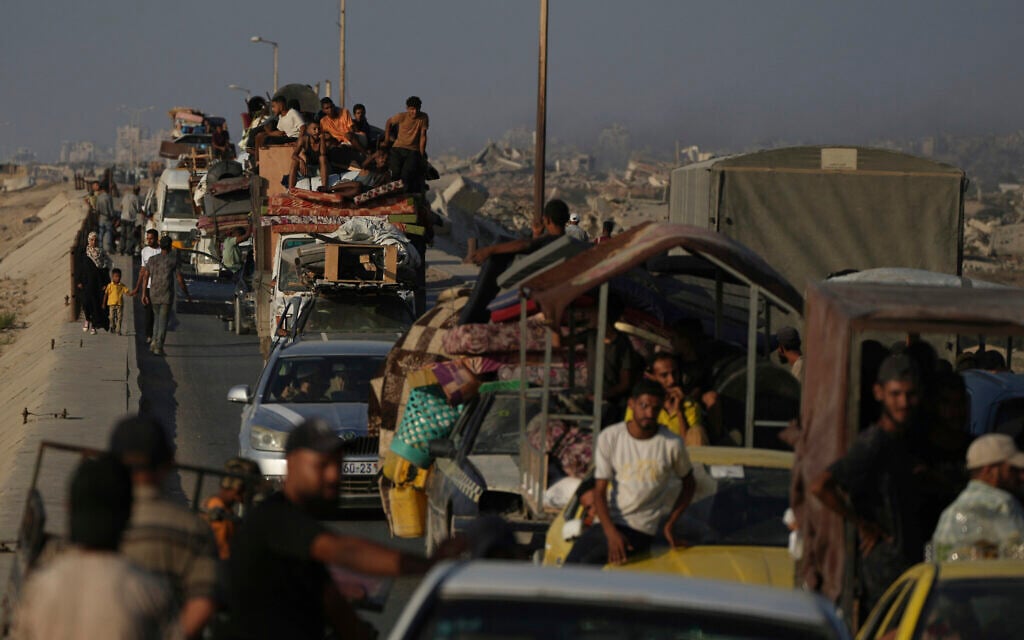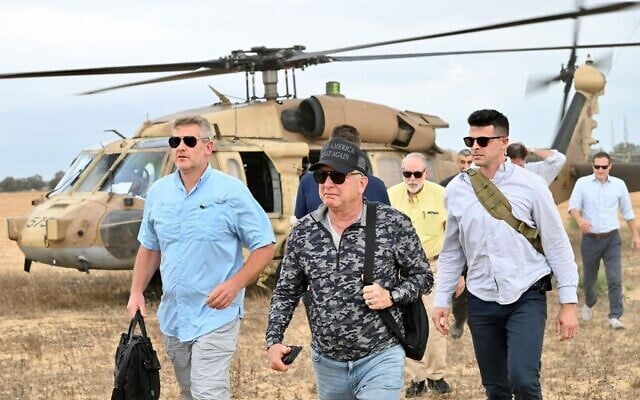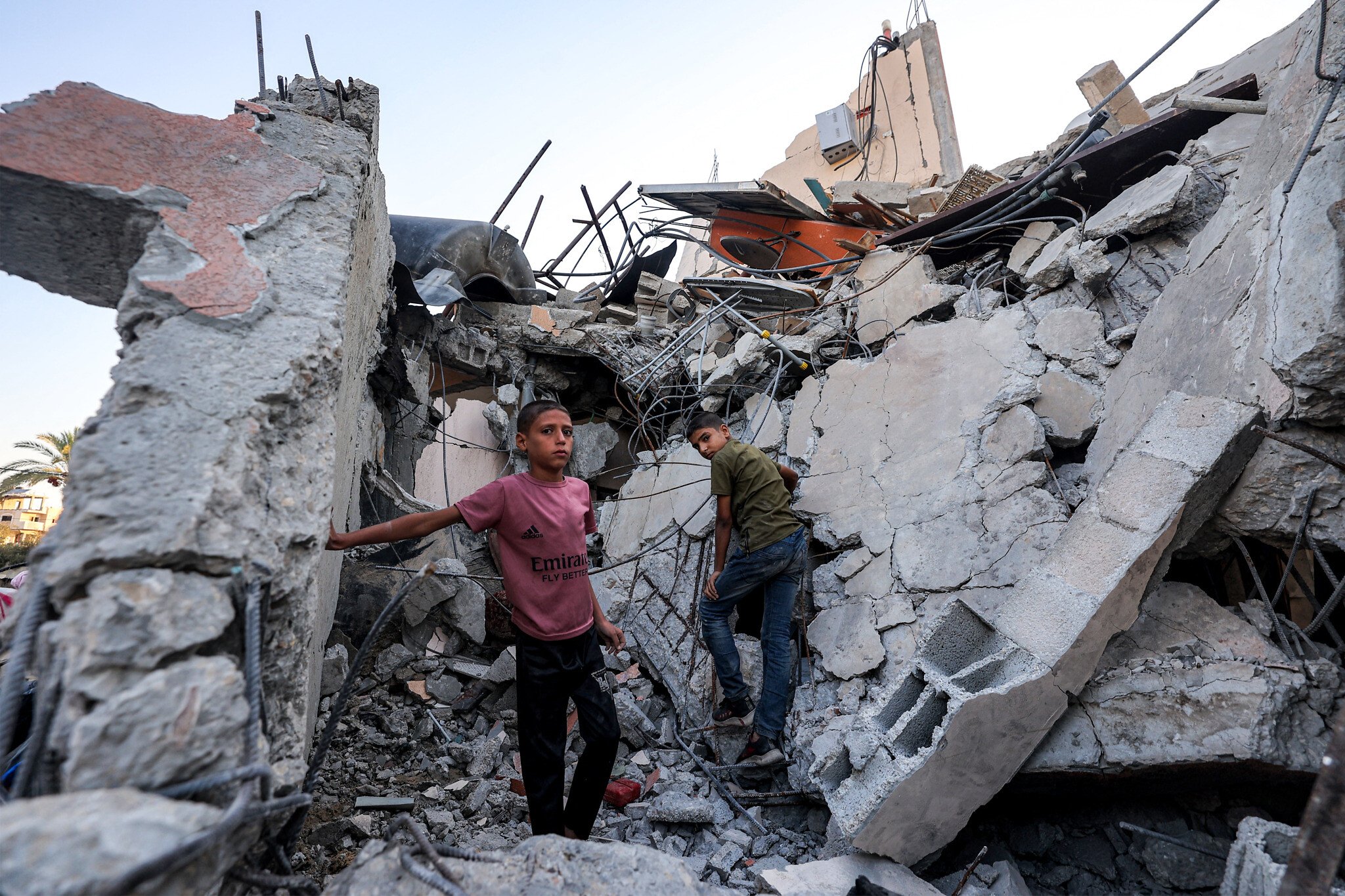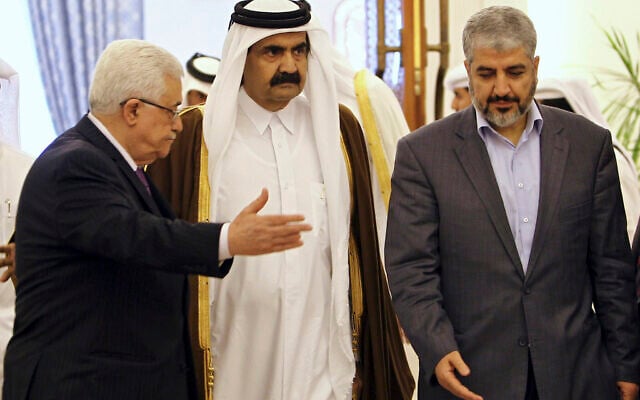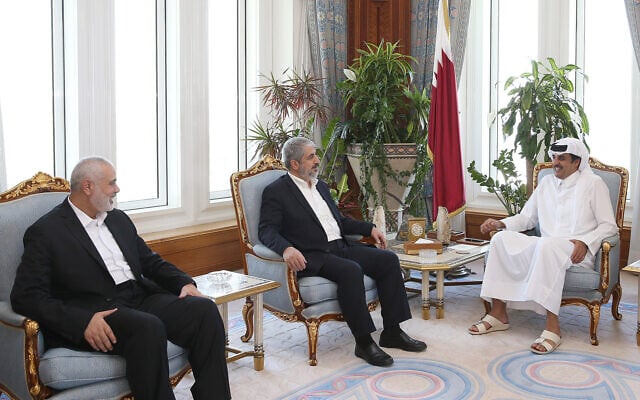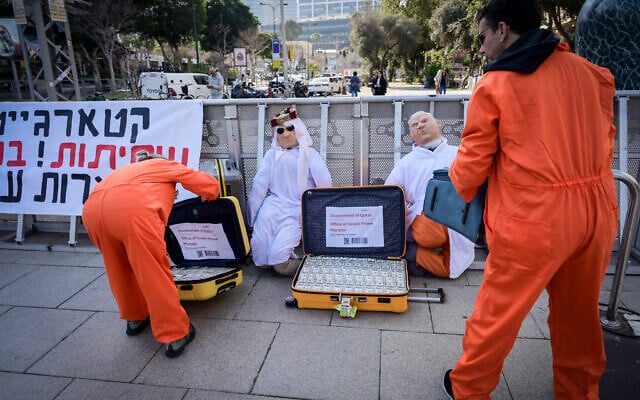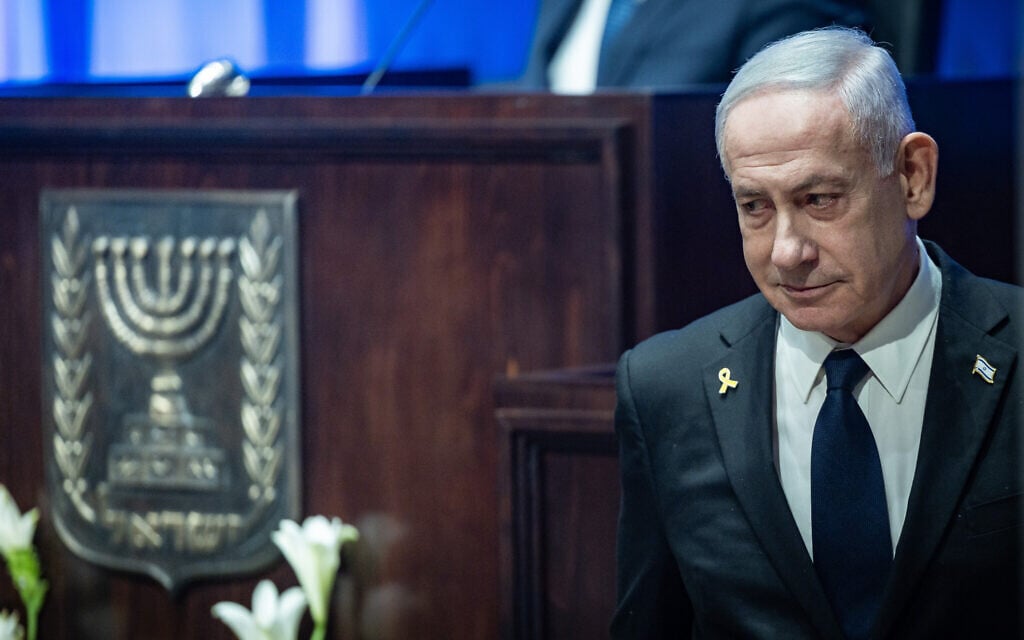


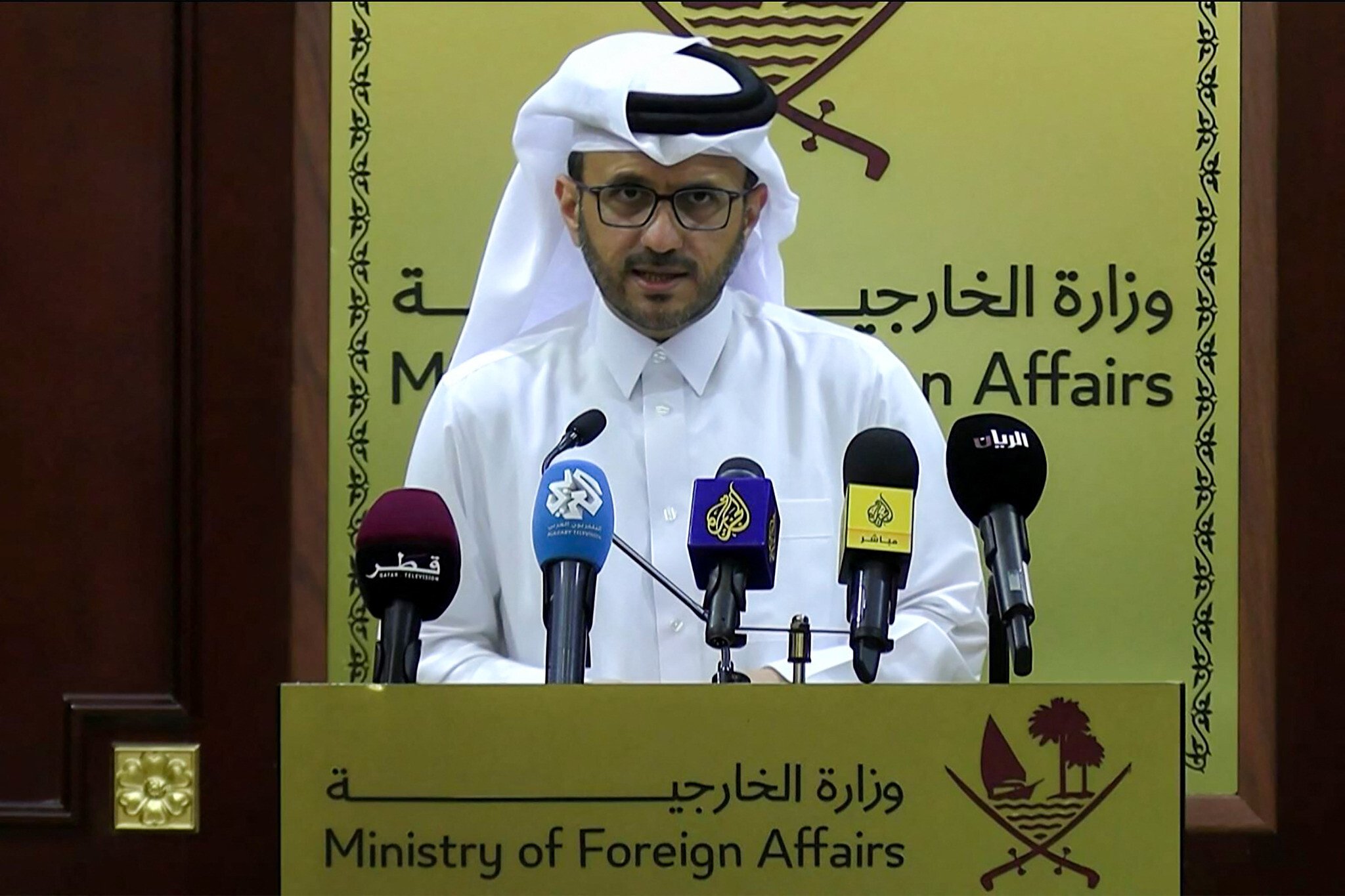
DOHA, Qatar — Arab mediators thought they had finally reached a breakthrough on August 18 when they coaxed Hamas to accept a proposal for a phased ceasefire and hostage release deal that was nearly identical to the one sponsored by US special envoy Steve Witkoff and approved by Israel a month earlier.
It was about three weeks after talks had blown up in Doha, however, and Israel and the US had recalled their negotiating teams over new conditions added by Hamas that Jerusalem and Washington refused to accept.
During that period, Israel declared it was no longer interested in the phased framework that had been discussed — one that Prime Minister Benjamin Netanyahu began pushing some 16 months earlier in order to try and secure the release of at least some of the hostages without committing upfront to a permanent end to the war.
But Arab mediators Egypt and Qatar stuck to the existing script — a two-month truce during which roughly half of the remaining hostages would be freed while Israel and Hamas would hold talks on a permanent ceasefire and the release of the remaining captives at the conclusion of those 60 days. Cairo and Doha deemed the gaps that existed after Hamas’s July 24 proposal small enough to fill, compared to the vast void that would exist between the sides if talks were to be held on a one-phase deal to end the war.
The mediators kept Witkoff apprised of their efforts, assuming he would back them if they succeeded. But when the breakthrough came, the US envoy remained mum for nearly two weeks before telling Fox News that the “official position” is against multi-staged hostage release deals.
In a Monday interview with The Times of Israel from Doha, Majed al-Ansari, the spokesperson for Qatar’s lead negotiator, Prime Minister Mohammed bin Abdulrahman al-Thani, avoided explicitly criticizing Washington’s conduct, but did assert that “moving the goalposts at every segment of this crisis only makes it impossible to reach a deal.”
For their part, Witkoff and Netanyahu have respectively claimed that Hamas “slow-played” and “led us astray” during earlier rounds of negotiations, justifying the decision to shift their approach to demand a one-phase deal.
The Israeli premier’s critics have argued that Israel has also added conditions or dragged out talks in ways that prevented hostage deals from being secured at earlier points in the war.
And while Hamas has long proposed releasing all of the hostages at once in exchange for an end to the war, as Netanyahu is now demanding, Jerusalem is also conditioning that end to the war on the terror group disarming, the Strip being demilitarized, Israel retaining overall security control over the enclave, and having a new civil administration that is not Hamas or the Palestinian Authority governing the territory.
“Does that sound like anything that any party can accept when it comes to a final deal? This is practically what happens when one side surrenders,” Ansari argued. “The Israelis have been militarily trying to solve this issue now for [almost] two years. What is their expectation? That they will secure these military outcomes through diplomatic means?”
The senior Qatari official, who is Doha’s foreign ministry spokesperson, clarified that despite Washington’s apparent rejection of the Arab mediators’ ceasefire offer — “which is 98 percent of what Witkoff’s proposal was” — the middlemen are not giving up and are “still entertaining” alternative ideas that envision a “more comprehensive” deal.
In the meantime, Israel is proceeding with plans to take over Gaza City, where roughly one million Palestinians are said to be sheltering after being repeatedly displaced throughout the 22-month war, which was triggered by Hamas’s brutal October 7, 2023, assault on southern Israel.
Hamas notably agreed to come down from its July 24 demands only after the security cabinet approved Netanyahu’s proposal to conquer Gaza City, which the premier is characterizing as Hamas’s last stronghold — language he also used to describe the southern city of Rafah before the IDF invaded the Strip’s southern border city in the spring of 2024.
Ansari conceded that the threat of military pressure may have been effective, but he argued that Israel failed to seize the opportunity for a diplomatic agreement once that pressure buckled Hamas.
“The threat of military pressure is different than actual military pressure on the ground,” he argued. “Because when you threaten to stab me with a knife, you might cause me to change my position, but after you stab me, the only thing I can do is [respond in kind].”
On the other hand, the government’s defenders retort that the threat of military pressure is only effective if it is proven credible.
Ansari maintained that “this intensification of operations in Gaza City will only mean that the military response from Hamas’s side is going to be all-out war,” which will only result in “guerrilla warfare.”
“We know from recent history that this is not something that armies excel at when they are fighting an indigenous population,” he argued.
The Qatari official claimed that this wasn’t the first time Israel had missed an opportunity for an agreement.
“There were deals on the table that would have brought most of the hostages home to their families, that would have brought peace to our region, that would have ended the bloodshed in Gaza and that would have guaranteed security, not only for Israel, but for the region as a whole,” Ansari said.
“The Witkoff plan was a very clear way out of this,” he continued. “We had the Americans on board, we had the Israelis on board, and finally, we had Hamas on board. But political posturing played a role in this.
“The dogmatic approach and perceptions of the crisis, in a way that didn’t reflect the realities on the ground, ended up being [decisive],” the senior Qatari official said, apparently referring to the US and Israeli decision to pull out of the talks on July 24 when Arab mediators felt a deal was still within reach.
Pressed on Hamas’s decision not to accept the so-called Witkoff proposal as is last month, Ansari agreed that the terror group had also repeatedly missed opportunities, and ignored the Arab mediators’ warnings each time that the terms for an agreement would only get worse the longer the war dragged on.
But as conditions deteriorate in Gaza — for Hamas, the hostages and Palestinian civilians — so too might the will of the fundamentalist group to compromise, Ansari said.
“The occupation of Gaza City, which will have catastrophic humanitarian results, is not going to push any side toward a deal,” he contended. “We told the Israelis that they are putting their hostages, their people, at risk without having a strategic view of what they want to do.”
The operation, he argued, was “a gamble that apparently the Israeli government wants to take, but one that will put the whole region at risk.”
Pressed on whether the commencement of the Gaza City operation would mark a point of no return for hostage talks, he responded that negotiations are harder to conduct under fire and the chances for a deal “go down dramatically.”
Still, he insisted that the Arab mediators would continue engaging on the issue, as they have to date.
Their latest proposal “is probably the fourth or fifth manifestation of that same document [from a year and a half ago] — back then, it was dubbed the Biden proposal,” Ansari said, referencing the framework backed by the US president at the time. “All of these proposals provided a pathway out of this [war].”
“Especially after the two-state solution conference in New York… there was a very clear position, an international consensus, with very few holdouts, but [the Israelis] did not seize that opportunity,” the senior Qatari official lamented.
At that conference, Qatar joined the rest of the Arab League in signing onto a joint statement that called on Hamas to release the hostages, disarm, and end its rule in Gaza.
The missive organized by France and Saudi Arabia surprised many of Qatar’s critics, who have long berated the Gulf state for its ties to Hamas, whose leaders have been hosted in Doha since 2012.
“We’ve been a mediator since 2006, but that doesn’t mean that we condone activities on both sides,” Ansari maintained.
He explained that Qatar has long called for Gaza and the West Bank to be reunited under the sole leadership of the PA.
But at Israel’s request, Doha also gave hundreds of millions of dollars in aid to Gaza, which for years helped prop up Hamas.
Ansari pointed out that Qatar has also bankrolled the PA to the tune of hundreds of millions of dollars, even while arguing for Hamas to be able to maintain a space in the Palestinian polity.
He acknowledged that the language of the joint statement against the terror group goes further than Doha has in the past, but said “it reflects the consensus in the region on what needs to be happening regarding the Palestinian question.”
As for whether the break with Hamas could lead Qatar to expel the group’s leaders from Doha, Ansari asserted that mediation was the only reason his country was playing the role of host — a longstanding request of the US and Israel.
“If there is no mediation to be had, that’s a different story,” he said, pointing to Qatar’s decision to quietly ask Hamas leaders to leave the country late last year when hostage talks stalled. Witkoff subsequently asked Doha to recall the group’s leaders, deeming that to be the best strategy for reviving talks that ultimately resulted in a temporary ceasefire in January.
Qatar’s relationship with Hamas — even though it was exploited by repeated Netanyahu governments — has made Doha a bipartisan punching bag in Israel.
Ansari didn’t appear fazed, though. “Netanyahu is one of the constants in the region since 1996. I was in school the first time he was elected as prime minister. This government’s way of doing business is not a new occurrence that we have to learn how to deal with.
“Scapegoating Qatar has become a favorite sport in so many countries. It is because of the mediation role we play, because of the engagement we have… that we are being attacked,” Ansari claimed.
But in Israel, two of Netanyahu’s aides are under criminal investigation for allegedly working for a pro-Qatar lobbying firm run by the premier’s former campaign manager while simultaneously being employed by the prime minister, even continuing their work for Qatar well past October 7.
Ansari insisted that Qatar has been perfectly aboveboard.
“We have a very clear communication line with the Israeli public and the Israeli government, and we don’t need any other way of affecting opinion,” he said, highlighting that his interview with The Times of Israel was the latest in a consistent engagement with Israeli media, going against the policy of most other Arab governments in the region — even ones that, unlike Doha, maintain full diplomatic ties with Jerusalem.
When pressed on the implicated Netanyahu aides’ acknowledgment of having taken Qatari money, Ansari declined to comment, saying that was a matter “for the courts to decide, and we’re not going to affect the judicial process by making any statements to contradict or to validate anything that’s being said in the courts.”
While Qatar’s relationship with Israel has long been strained, its ties with the US are at a “high note” under the Trump administration, Ansari said.
“We’ve been working together, not only on the Palestinian issue, but on so many issues around the world — some of which are known, some of which are not,” he revealed. “We believe this administration can do a lot of business when it comes to peace-building internationally.”
To succeed in Gaza, though, “American pressure is what is going to get the Israelis to the table,” he said.
“Ultimately, it’s a political decision [that needs to be made] in Israel,” Ansari said. “We’ve heard what the [IDF] has been saying about the operation in Gaza. We’ve heard what they have said about the [need for a] deal. So we know it’s purely a political decision… that has to be taken by the political operators who are making it difficult to reach this deal.
“Obviously, this will need international pressure — paramount among which is pressure from the United States,” Ansari added.

